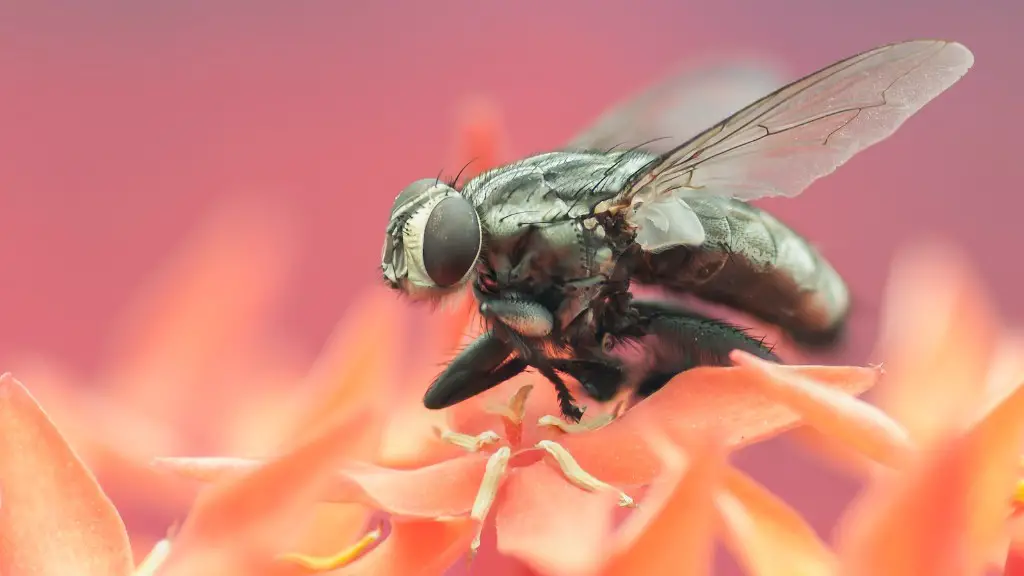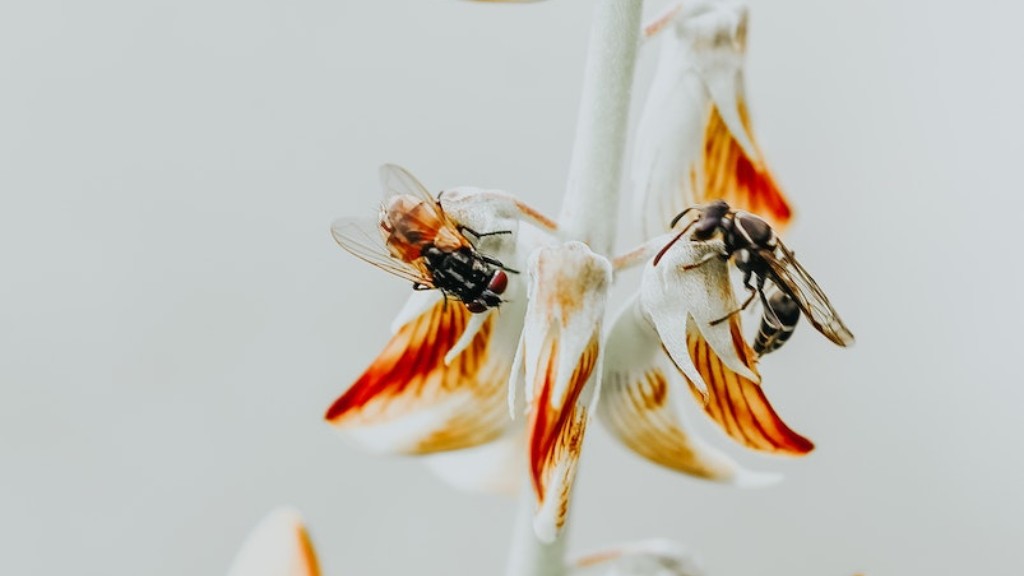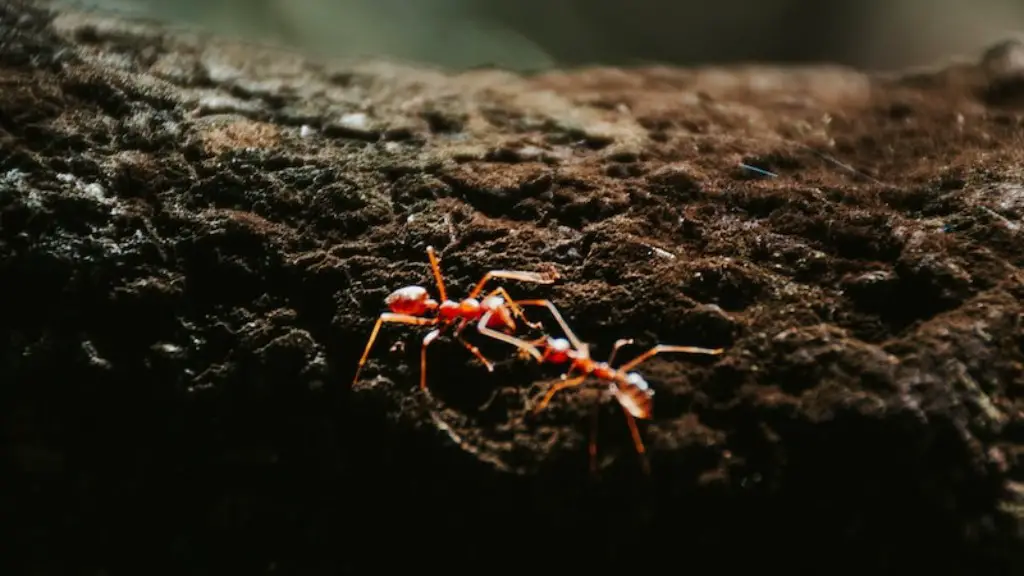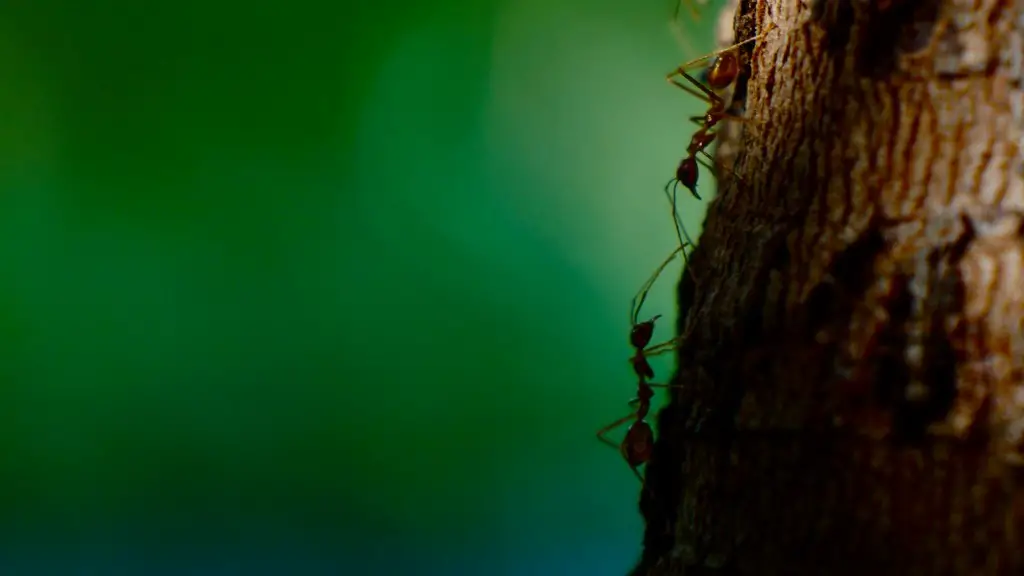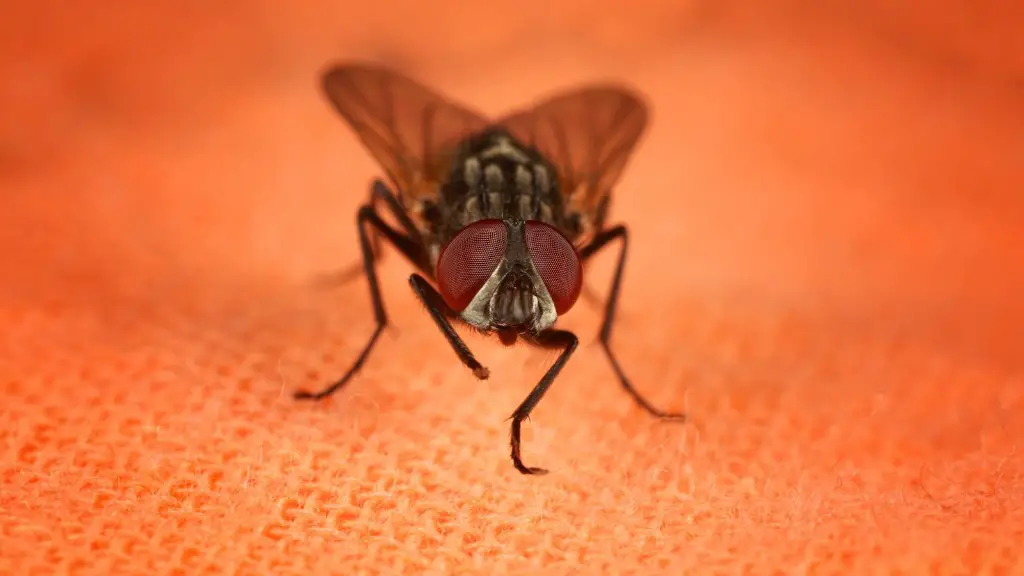Horse flies (~Tabanidae~) are a family of large, bloodsucking insects. They are often brightly colored and their bite is very painful. They are found near water sources and their larvae live in mud.
Horse flies reach out with their long, sharp mouthparts to pierce the skin and suck blood.
What happens when horse flies bite you?
A horsefly bite can be painful, and may cause redness, swelling, and other symptoms like hives. However, these bites usually go away on their own within a few hours or days.
Mosquitoes and horseflies are both insects that feed on blood. However, there are some key differences between the two. For one, mosquitoes release a mild anaesthetic while they bite, which numbs the area and prevents pain. Horseflies, on the other hand, do not release any anaesthetic. This, coupled with the fact that they cut into the flesh rather crudely, is why their bites are so painful. Additionally, mosquitoes have an anticoagulant in their saliva which prevents the blood from clotting. This is not the case with horseflies, whose saliva does not contain any anticoagulant properties.
Will a horse fly bite for no reason
Yes, horse flies can bite humans. While male horse flies feed on pollen and plant nectars, females aggressively feed on blood. Horse flies most often bite moving and dark objects. They are relentless and will continue to bite their host until they succeed in procuring their blood meal or are killed.
Horsefly bites can be painful and cause welts. The welts can help identify horsefly bites. Horsefly bites can also cause a large, red, raised rash at the site or over a wider area.
What attracts horse flies to humans?
Female horse flies are attracted to humans and animals by their colors, movements, and shiny objects. They are also attracted to warmth, sweat, and exhaled carbon dioxide.
Horseflies are one of the most annoying and painful insects around. Unlike mosquitoes, they don’t release a mild anaesthetic, which is one of the reasons their bites are so painful. Once the horsefly has locked into your skin, it will suck the blood, causing a sharp burning sensation. In most cases, this will lead to itchiness, inflammation, and swelling around the bite area. If you’re unlucky enough to be bitten by a horsefly, the best thing you can do is to try and remove the insect as quickly as possible. Apply a cold compress to the area to help reduce the swelling and pain.
How can I stop getting bitten by horseflies?
It’s important to take some basic precautions to avoid horsefly bites. First, apply insect repellent before going outside. Second, wear light-coloured clothing – horseflies are attracted to darker colours. Third, cover up your arms and legs and wear closed-toed shoes. Fourth, don’t wear any perfume – scents attract these flying insects.
If you’re planning on having a gathering outdoors, you can help keep horse flies away by burning citronella candles and lighting torches. The smoke and scent released from the citronella oil can help keep horseflies from attacking your guests.
How long do horsefly bites last
If a horsefly bite is not infected, it usually settles within a few days. However, if the bite becomes infected, it can take longer to heal. Infection does not normally occur immediately after being bitten, but usually two to three days later. If you think you may have an infection, seek medical attention.
Horsefly bites can take a while to heal, and can become infected. If you experience symptoms of an infection, such as pus or increasing pain, redness, and swelling, see your GP.
How long is horsefly season?
Deer flies and horse flies are a type of fly that feeds off of blood. There are over 30 species of these flies found in Wisconsin. They are active from May until September.
As deer flies and horse flies are attracted to dark colors, it is best to wear light colors to avoid being bitten. In addition, instructions on how to make a deer fly trap suggest that these insects are not as attracted to light colors or white, so wearing these colors may help to keep them away.
Why do horse flies circle your head
There are a few reasons why insect repellent may not be effective against deer flies and horse flies. One reason is that these flies often go for people’s heads, where they can wiggle under hair to find skin. Another reason may be that people don’t usually thoroughly spray their scalp with insect repellent.
Only the female horse flies bite; they require blood meals in order to produce eggs. All horse flies are aggressive, but the bigger ones can be particularly menacing. If you are bitten by a horse fly, clean the wound with soap and water as soon as possible. Apply an ice pack to reduce swelling and seek medical attention if the bite is severe.
What repels horse flies from humans?
Repellents are effective against horse flies, however, the most effective way to prevent horse fly bites is to wear long sleeves and long pants.
Horse flies are not without predators. Birds eat both adults and larvae. Nematodes and wasps parasitize the larvae. Adults are captured by solitary wasps to provision their egg caches and by spiders.
How long do horseflies live
Horse flies are a type of fly that is known to lay their eggs on the ground in the fall. The eggs will then hatch and turn into larvae, which will overwinter. In the spring, the horse fly will develop into the pupae stage, and by early June, it will emerge as an adult. The adult horse fly typically only lives for 30-60 days.
Skin So Soft Original Dry Oil Spray is an effective midge & fly repellent that can be used on both horses and humans. It is made with natural ingredients and is non-toxic, making it safe for use on both animals and people.
Conclusion
The horse fly will land on the skin and then use its saw-like mouthparts to slice through the skin and then lap up the blood that is oozing from the wound.
Horse flies are able to bite because of their sharp mouthparts. These mouthparts are able to pierce the skin and then the horse fly will suck the blood out of the wound.
